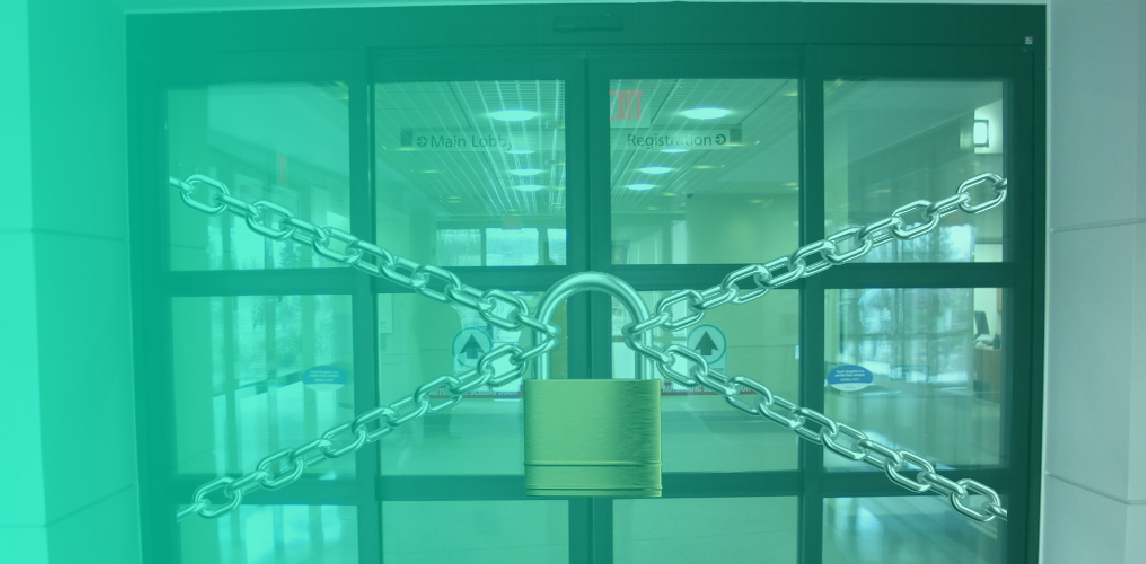Securing Healthcare in a Digital Age

Today, digitization has become the norm across industries. Businesses of all sizes are adopting new technologies and processes to stay competitive, operate more efficiently, and deliver the best possible services and experiences to customers. While the shift to a digital-first approach has come with a wealth of benefits, the neck-breaking speed of digitization has made it difficult for many businesses to properly secure systems, newly implemented platforms, and valuable data.
One of the most heavily impacted industries is healthcare, which is now heavily reliant on electronic health records (EHRs) containing sensitive patient data. Unfortunately, many healthcare organizations have failed to adequately secure their new technology solutions and harden their security posture. Whether this is due to oversight or a lack of in-house expertise that can properly guide the process, the results are the same – a dramatic and alarming increase in cyberattacks against healthcare businesses.
By its very nature, the healthcare industry handles an abundance of sensitive information, including patient records, medical histories, and financial information. This treasure trove of data makes these organizations ideal targets for cybercriminals who exploit vulnerabilities and gain unauthorized access to valuable information and hold it for ransom. The consequences of a successful cyberattack on a healthcare organization can be devastating, ranging from financial losses and legal repercussions to compromised patient care and damaged reputation due to a loss of trust.
Protecting healthcare data through HIPAA
To address the protection of sensitive patient data, the US healthcare industry established the Health Insurance Portability and Accountability Act of 1996 (HIPAA), which applies to a wide swath of organizations, including healthcare, dental, and vision providers, pharmacies, health plan providers, clearinghouses, business associates of HIPPA-covered entities, and more.
HIPAA established rigorous compliance regulations that govern the security of electronically protected health information (ePHI) or any health information created, maintained, or transmitted electronically.
HIPPA has numerous rules, but the three most important are:
- The HIPAA Security Rule: Establishes security standards for protecting ePHI, including implementing administrative, technical, and physical security measures to protect it.
- The HIPAA Privacy Rule: Establishes privacy standards for protecting ePHI and regulates how healthcare organizations can use and share ePHI.
- The HIPAA Breach Notification Rule: Requires healthcare organizations to notify patients and the government if there is a breach of their ePHI.
Healthcare: A magnet for cyberattacks
Despite vast regulations which should make the industry a less attractive target, attacks against healthcare organizations increased by 5% in 2022 compared to 2021, according to research from Check Point. In the third quarter of 2022, healthcare became the most targeted of all industries. Last year, CommonSpirit Health, the US’s second largest healthcare system, and Medibank, Australia’s biggest health insurer, were both victims of cyberattacks.
Reliance on interconnected systems, EHRs, and IoT medical devices make this industry particularly vulnerable to attacks, and the consequences can extend far beyond the immediate breach. Some of the major impacts healthcare organizations may face include:
Healthcare Services Disruption: A cyberattack could damage or destroy EHRs, preventing healthcare providers from accessing patient information and leading to delays in treatment, misdiagnosis, and even death.
Data Leaks of Sensitive Personal Information: Beyond medical information, patient records contain personal data that can be exploited and used for identity theft or to commit other fraudulent activities.
Legal and Financial Risks: Healthcare organizations that fail to adequately protect patient data may be subject to legal actions and regulatory penalties. The costs associated with breach remediation, legal settlements, and potential loss of business can be financially crippling.
Strategies for protecting healthcare systems and infrastructure
Given the high stakes, healthcare organizations must look beyond just the top level of securing EHRs. Taking a holistic approach and understanding where ePHI exists is critical, as it can be contained in legacy systems, software, and connected devices. Businesses can reduce risk, strengthen security and ensure operational resilience by implementing a compliance program and following tried and tested best practices.
Updating and Patching: One of the most effective strategies for addressing known vulnerabilities and preventing attacks is having a vigilant updating and patching process that covers all software and systems. A Ponemon Institute study found nearly 60% of breaches could have been prevented with a proper patch, yet the process often gets overlooked or underprioritized.
Disconnecting Legacy Systems from the Internet: Many healthcare companies still operate with outdated legacy systems, including operating systems like Windows 7, which reached its end of life several years ago and no longer receives security patches. That makes them easy targets for threat actors, but disconnecting these vulnerable systems from the internet minimizes exposure and reduces the risk of unauthorized access.
Implementing Security Solutions: Deploying a range of advanced security solutions is paramount for fortifying systems. Endpoint Detection and Response (EDR) solutions can proactively identify and respond to potential threats, while multi-factor authentication (MFA) can add an extra layer of security by requiring multiple verification steps before granting user access.
Partnering with a SOC provider can ensure a comprehensive approach to security. Not only can SOCs monitor, detect and respond to threats in an organization’s digital environment, but their proactive strategies can help prevent backdoor attacks and provide compliance support and recommendations to improve security postures.
Keeping healthcare data safe and systems secure
Healthcare organizations are entrusted with vast amounts of sensitive information and must recognize the high probability of cyberattacks. Compliance with regulations such as HIPAA is essential, but it is equally crucial to adopt proactive security measures.
By following best practices such as prioritizing regular updates, disconnecting legacy systems, and implementing advanced security solutions, including a SOC, healthcare companies can mitigate the risks associated with attacks. As dependence on digital and computational systems continues to increase, the healthcare industry must heavily focus on and invest in cybersecurity.


